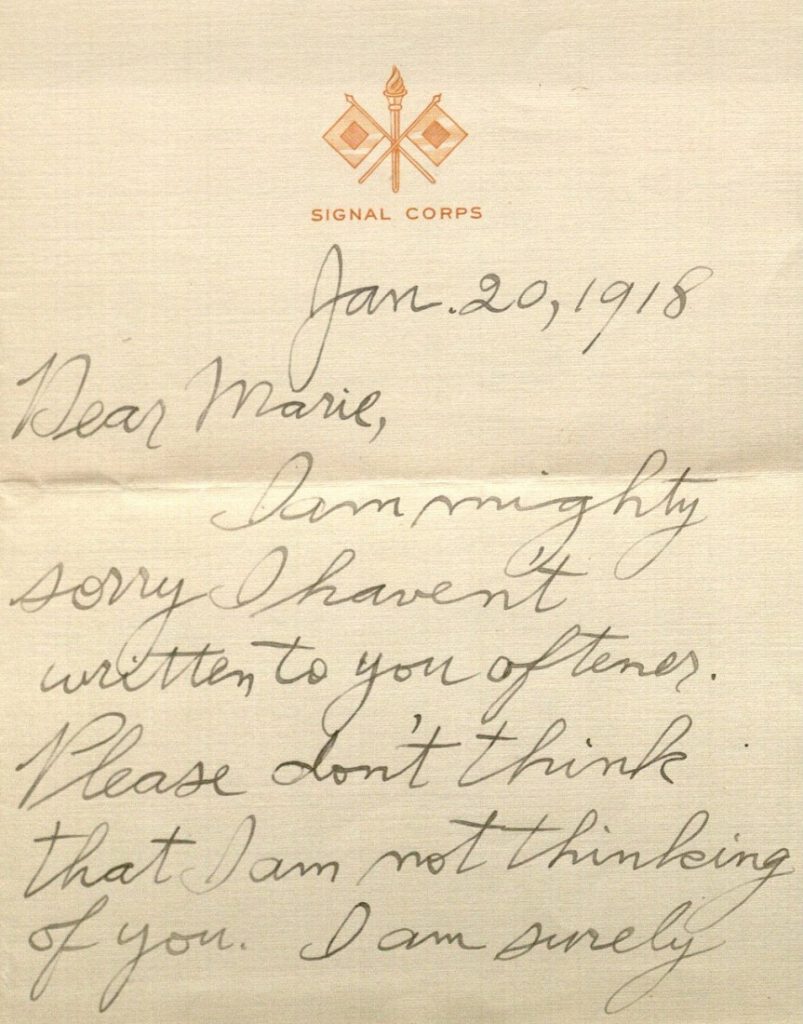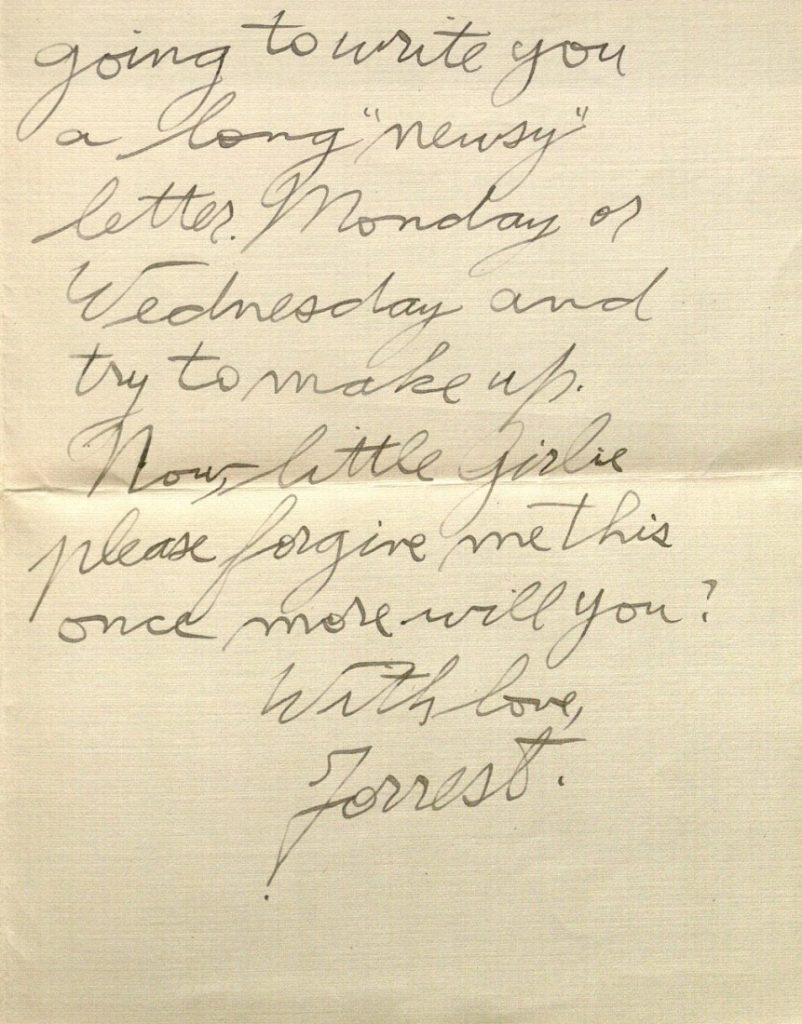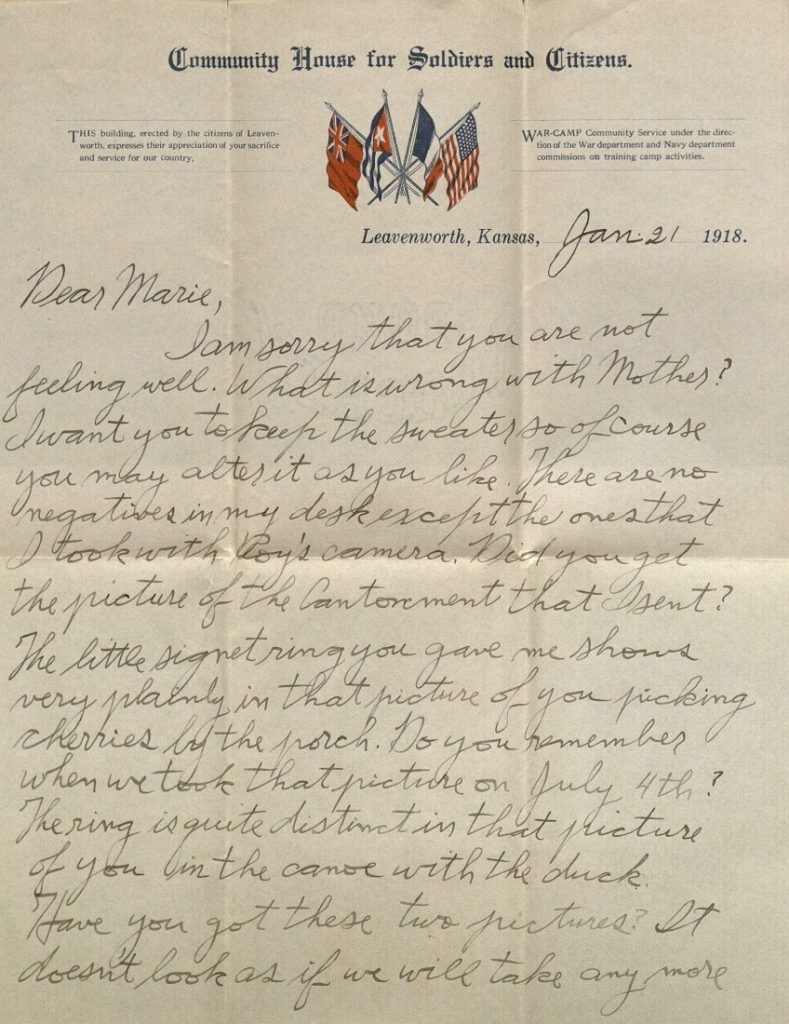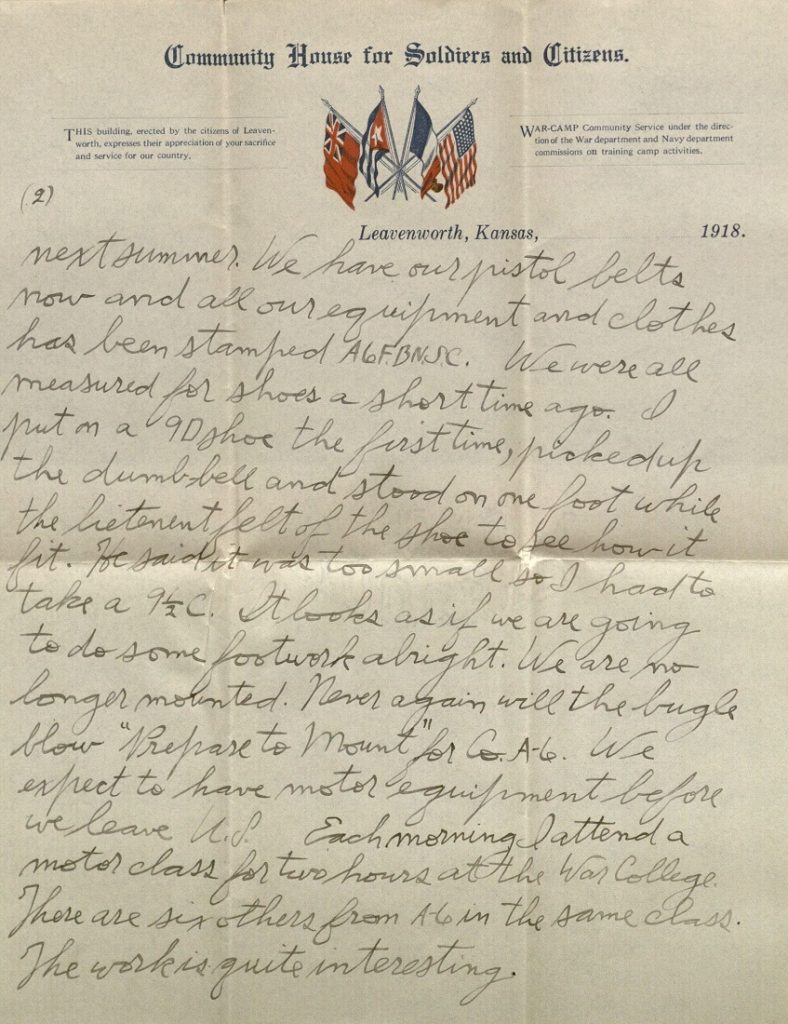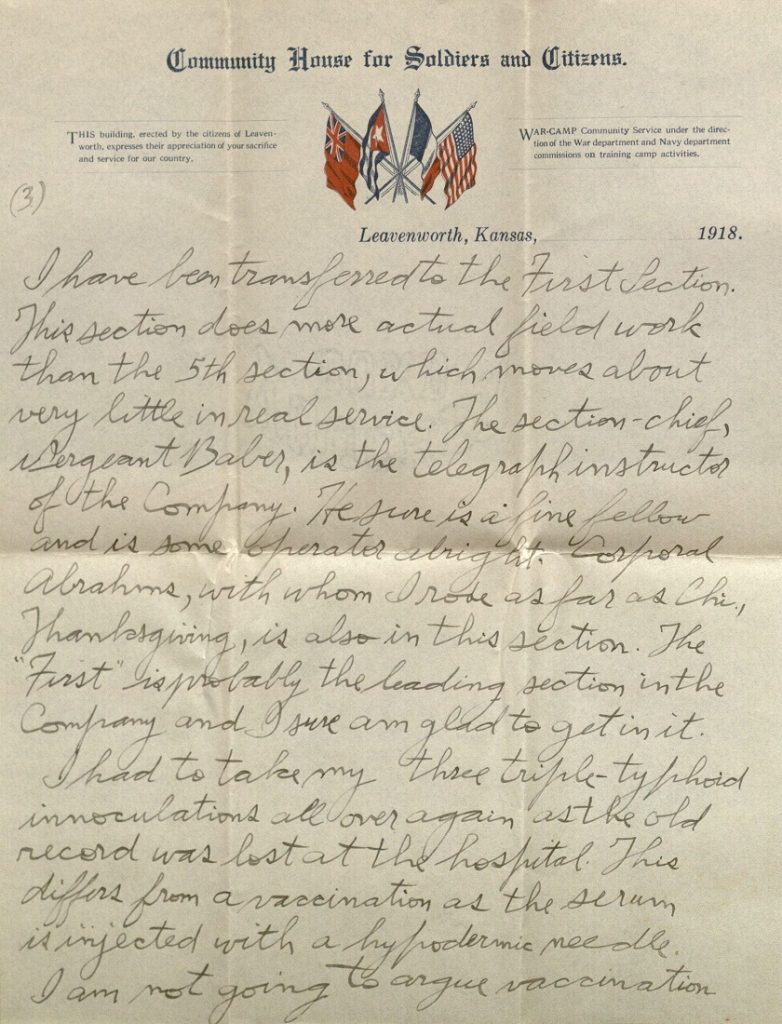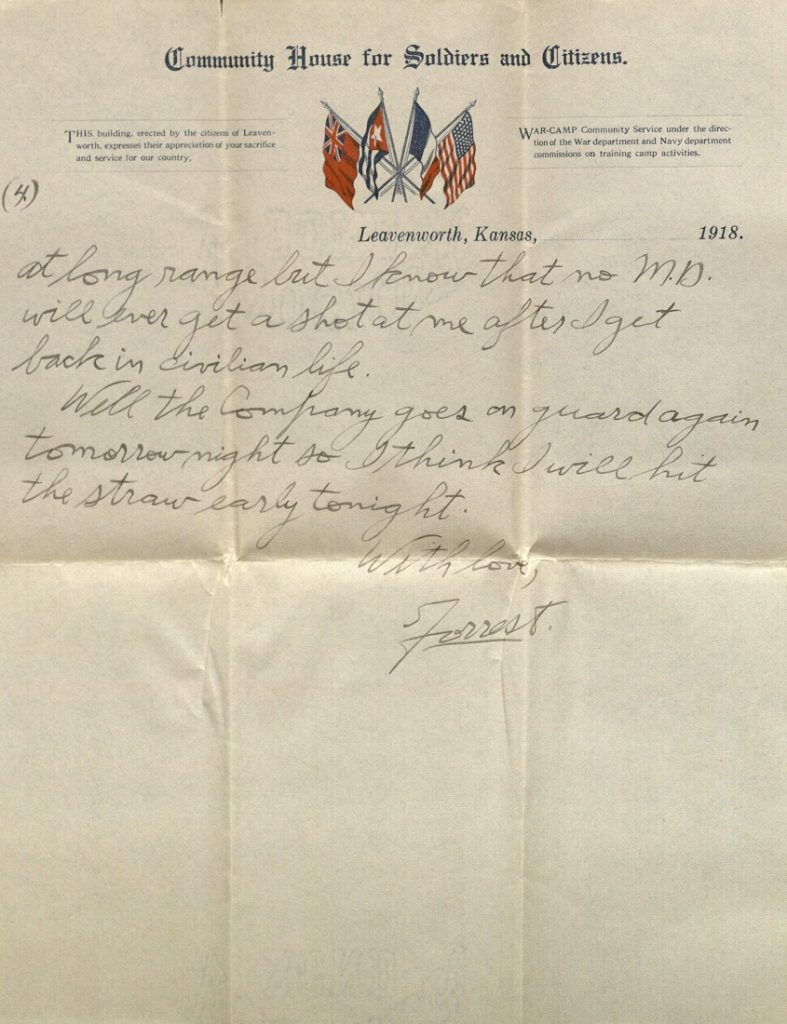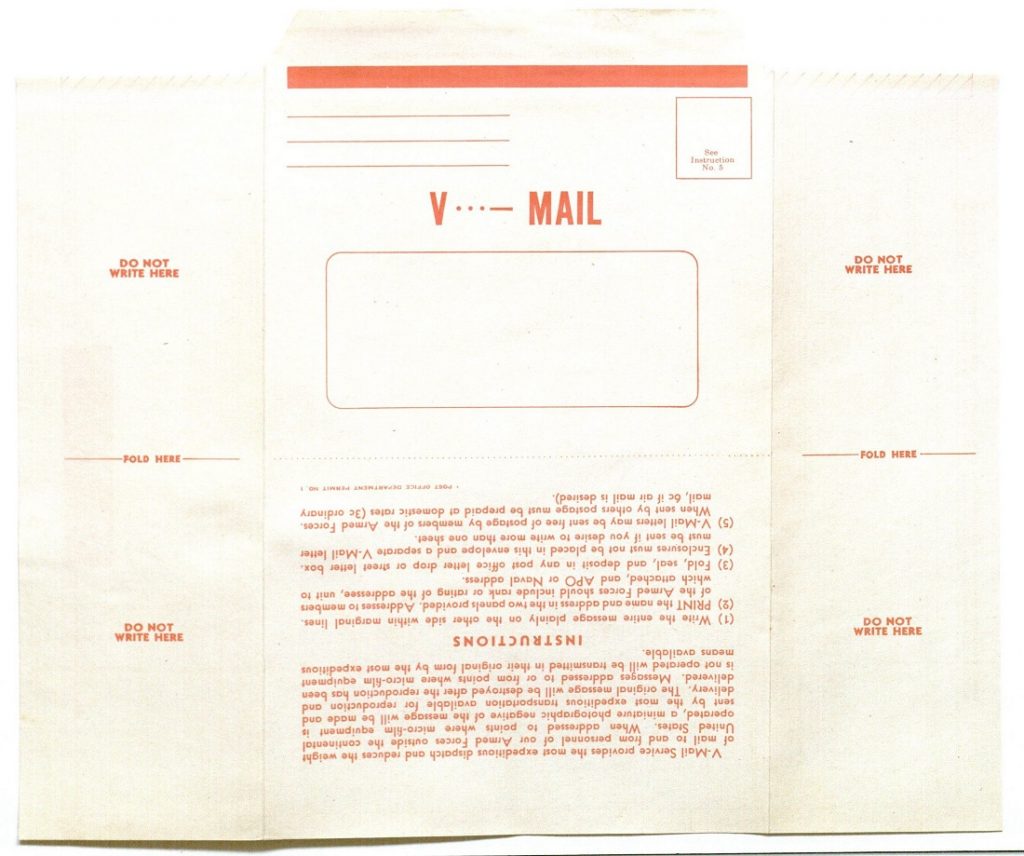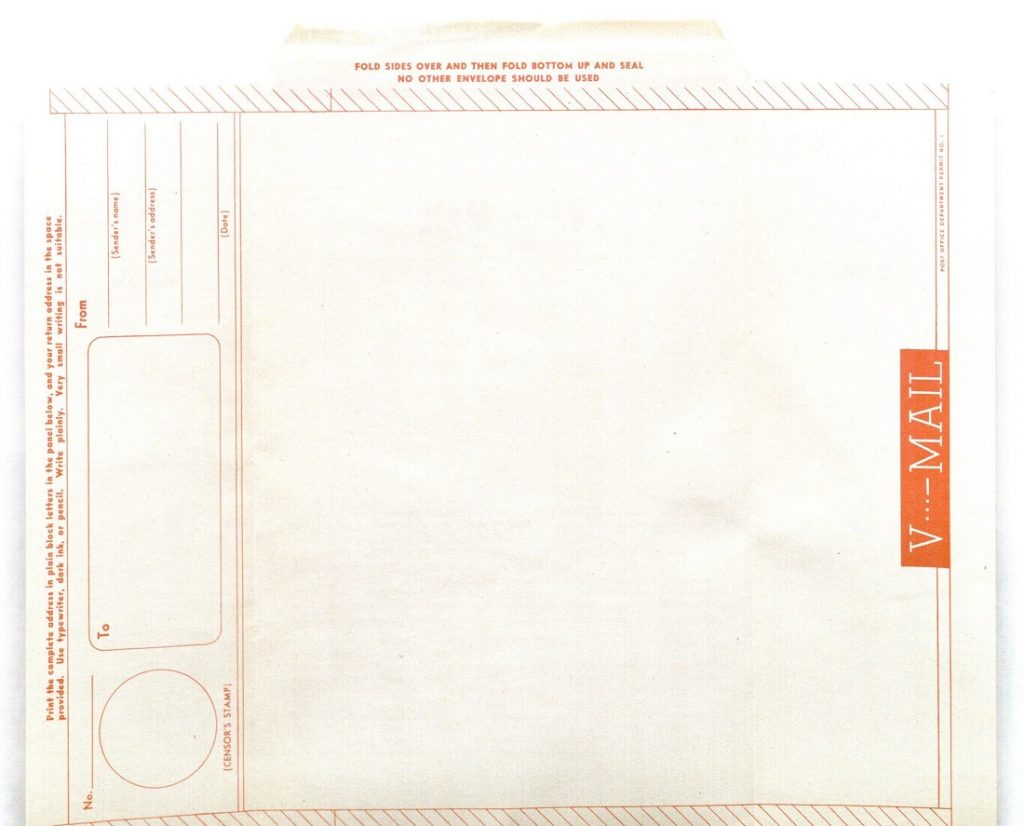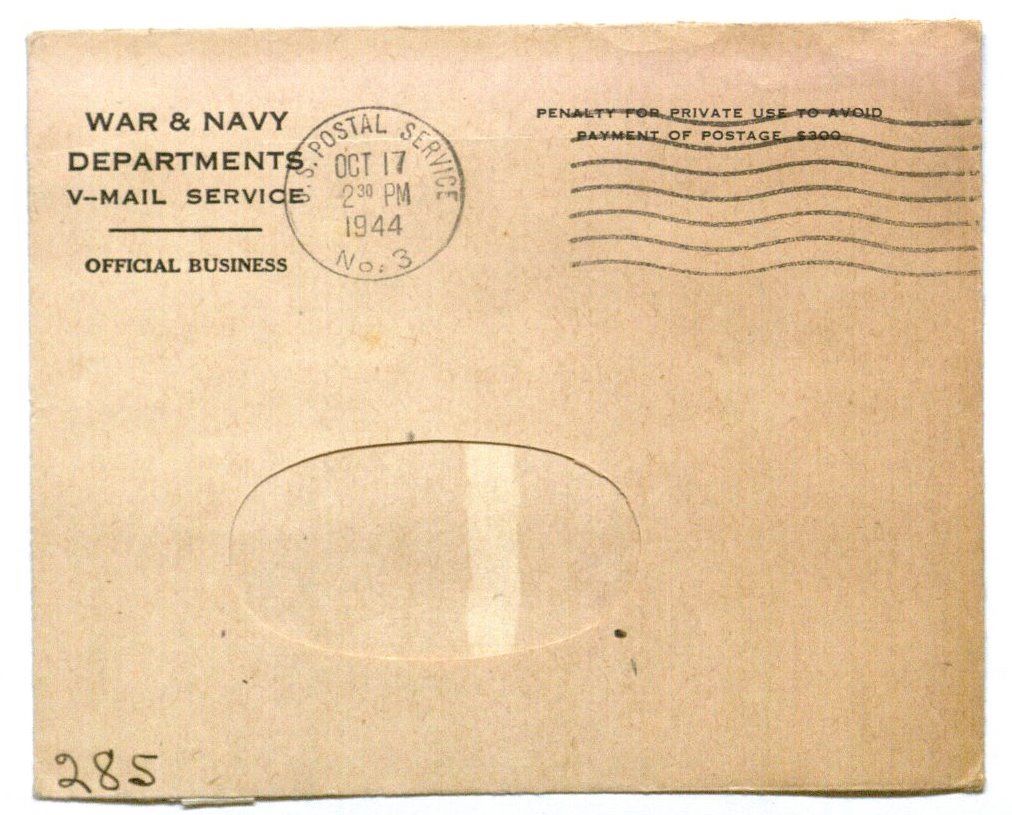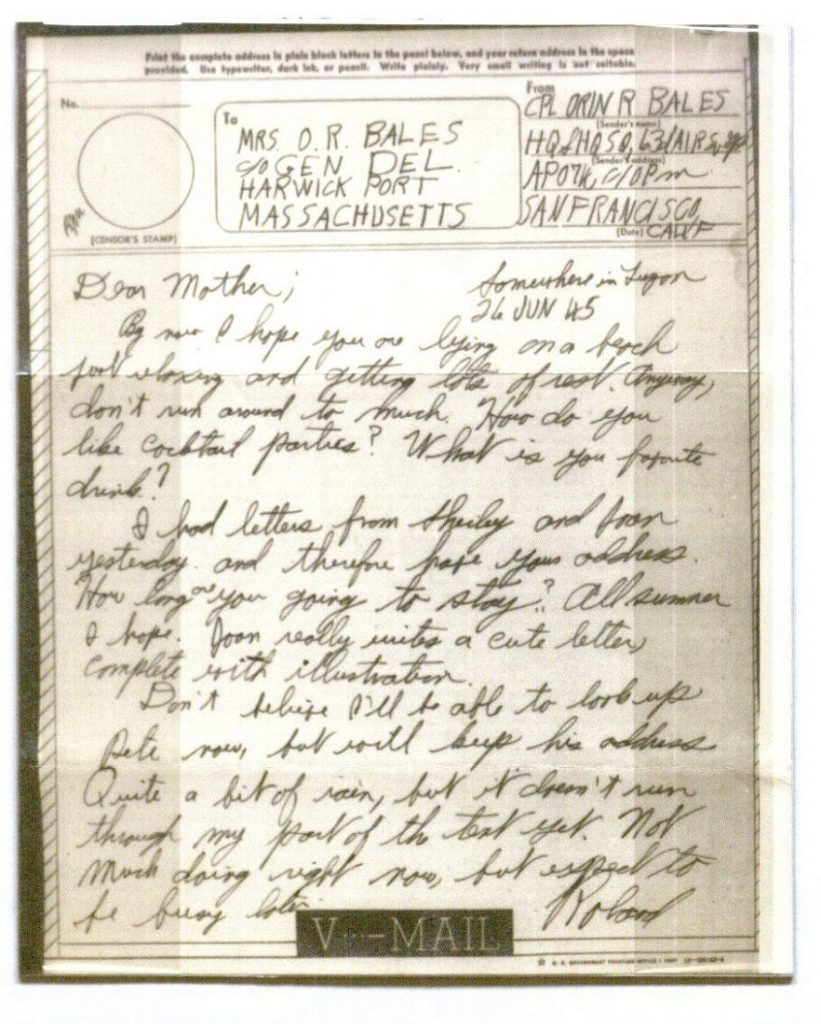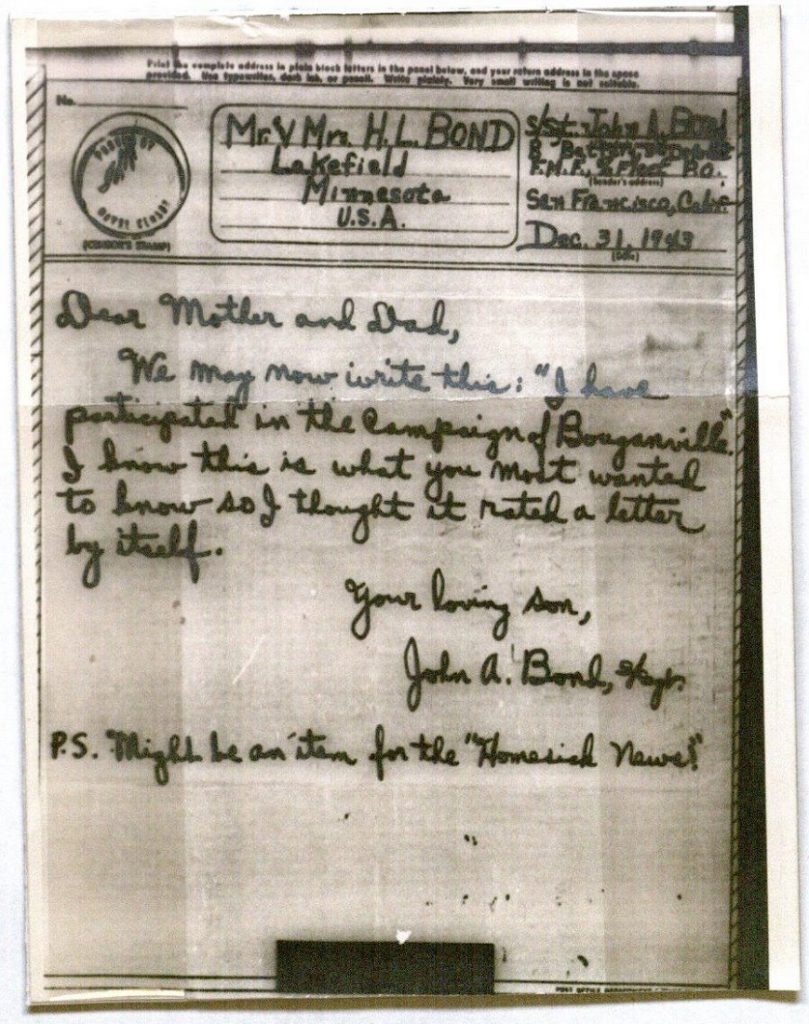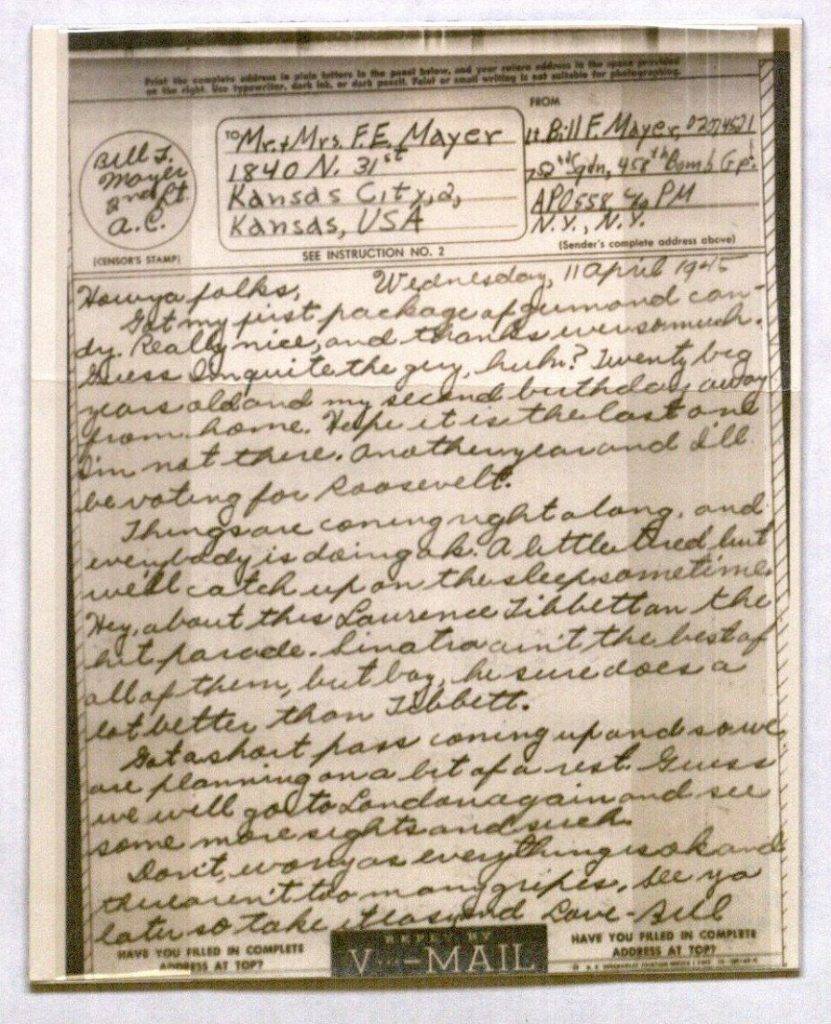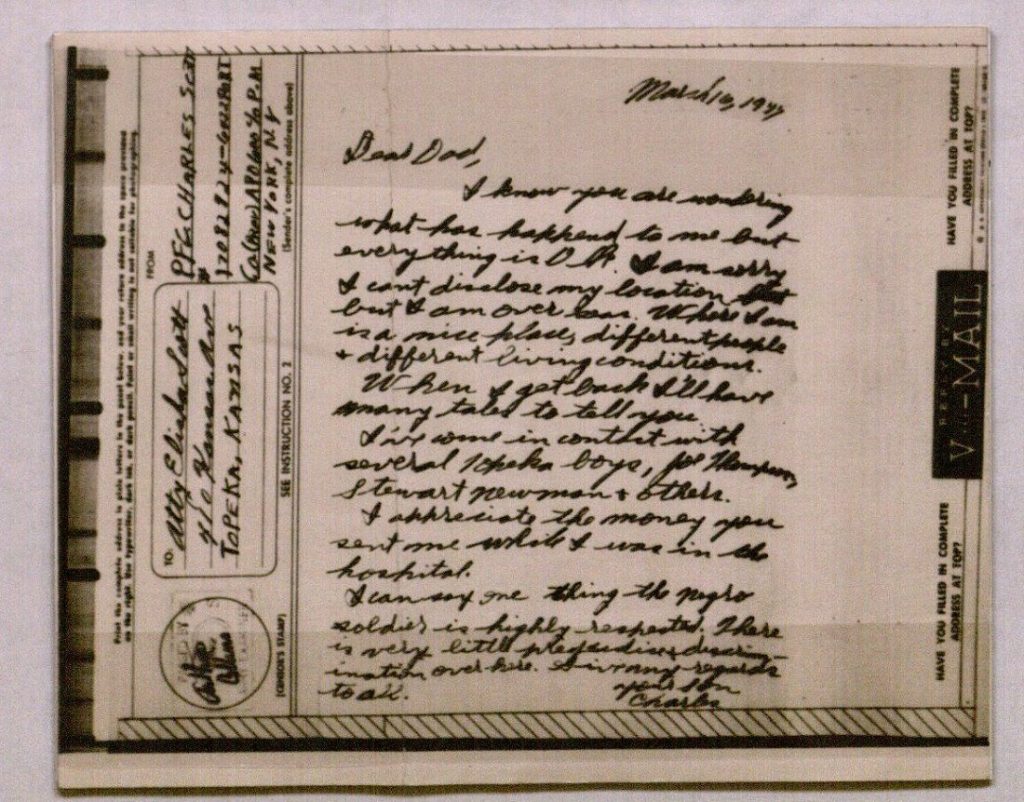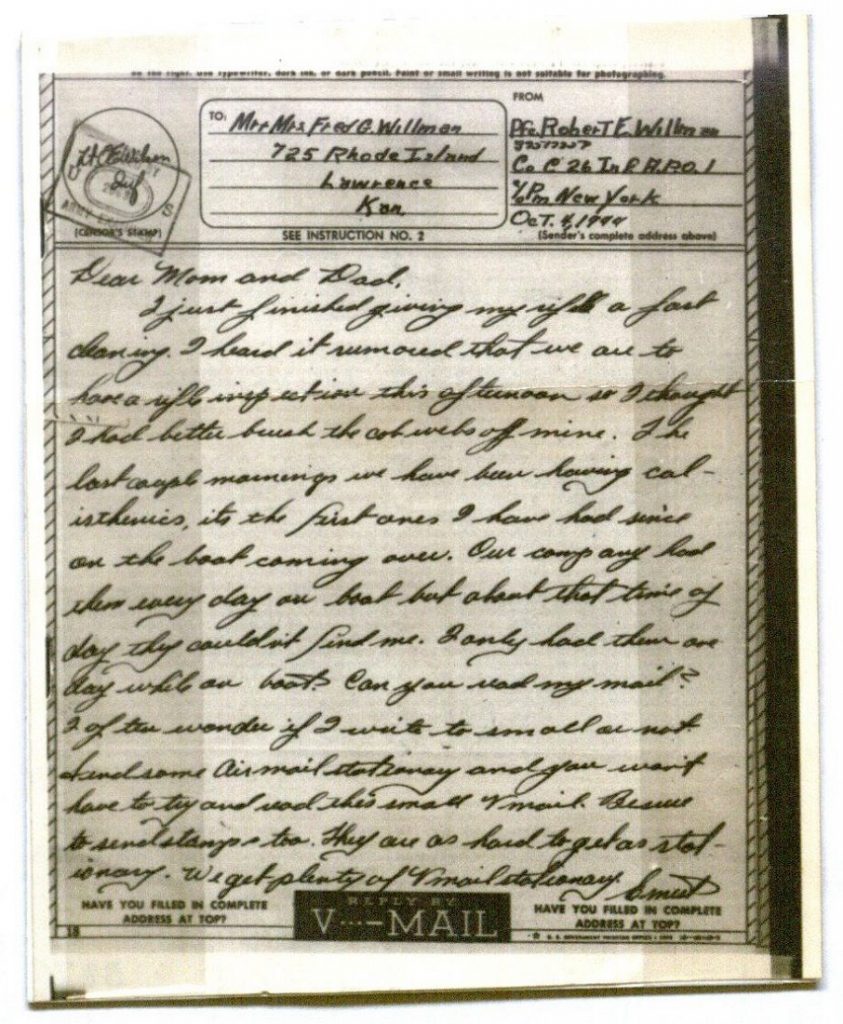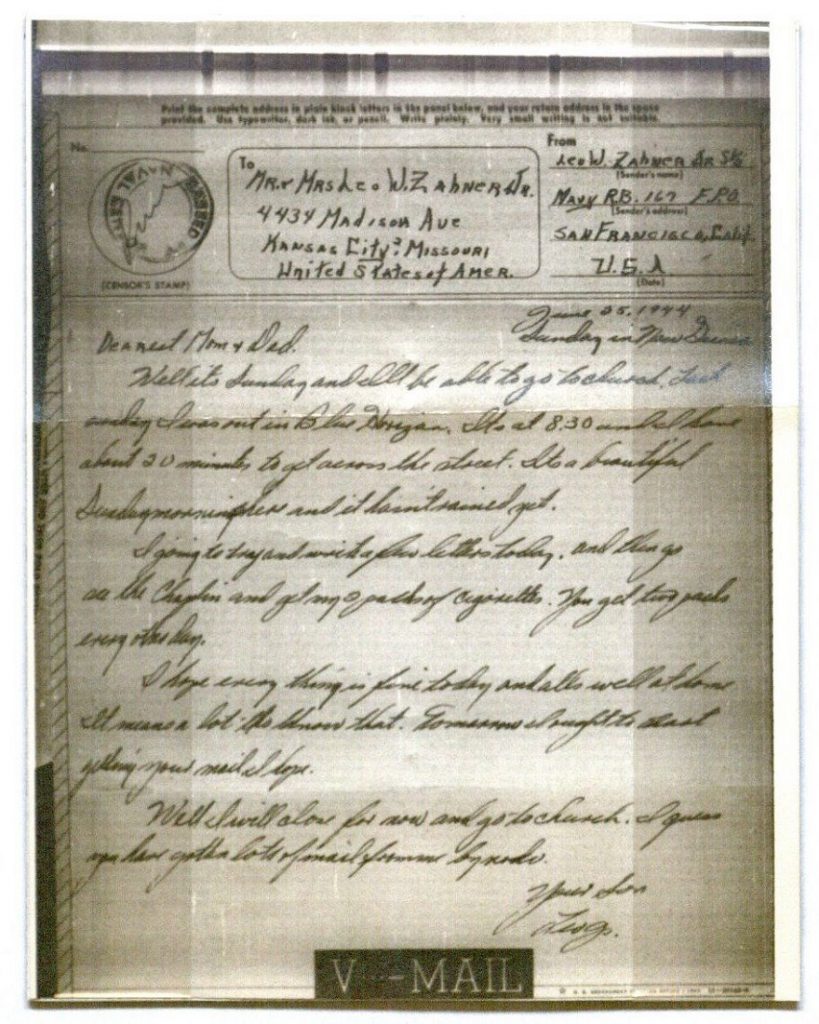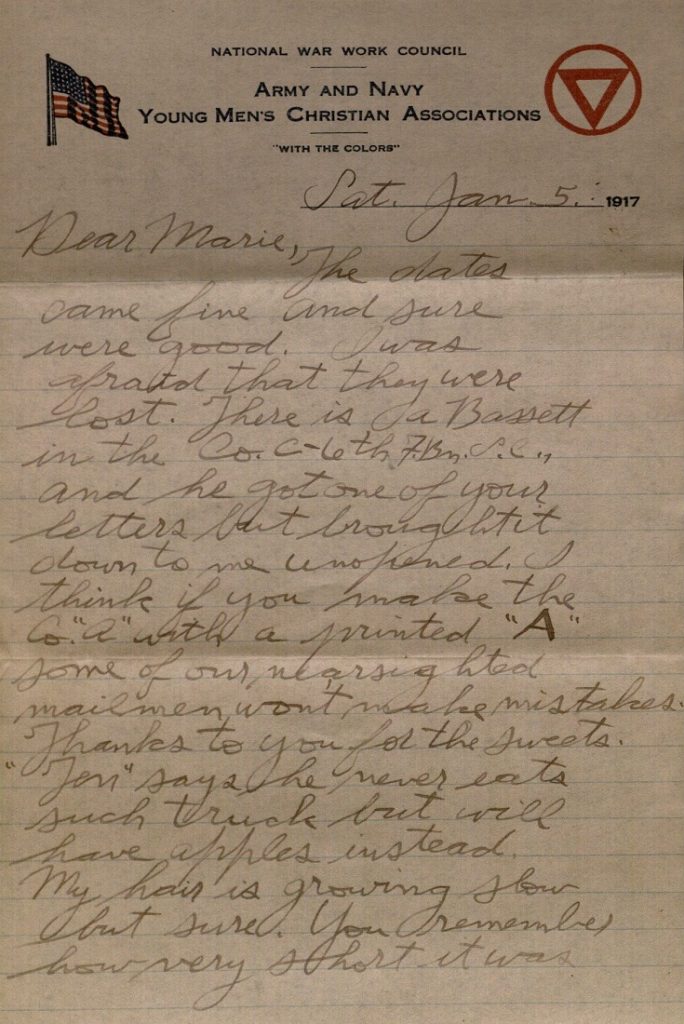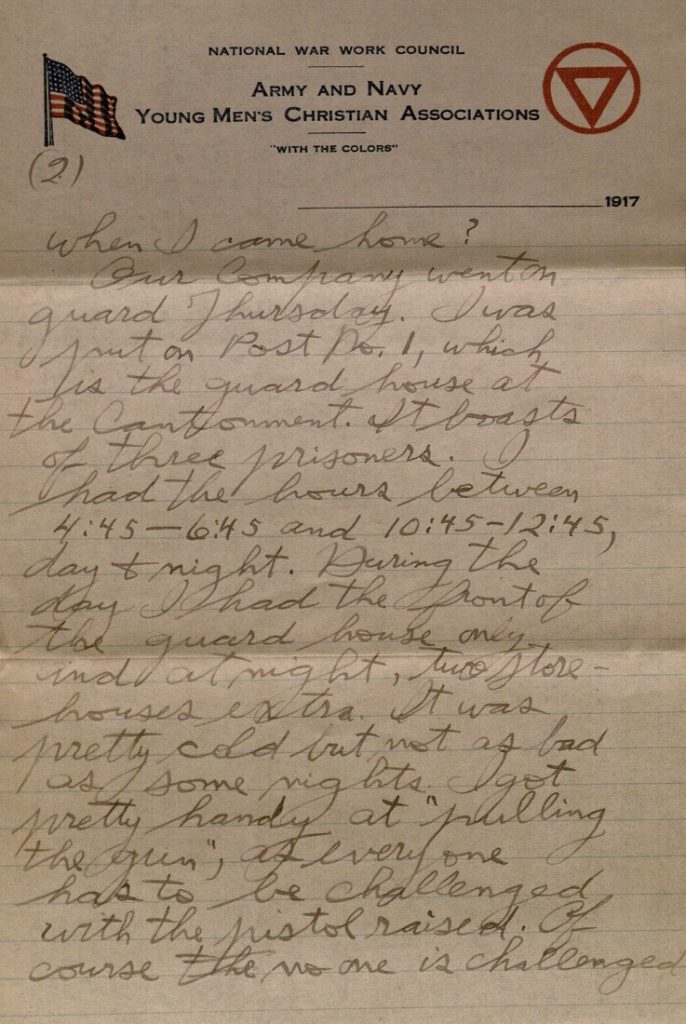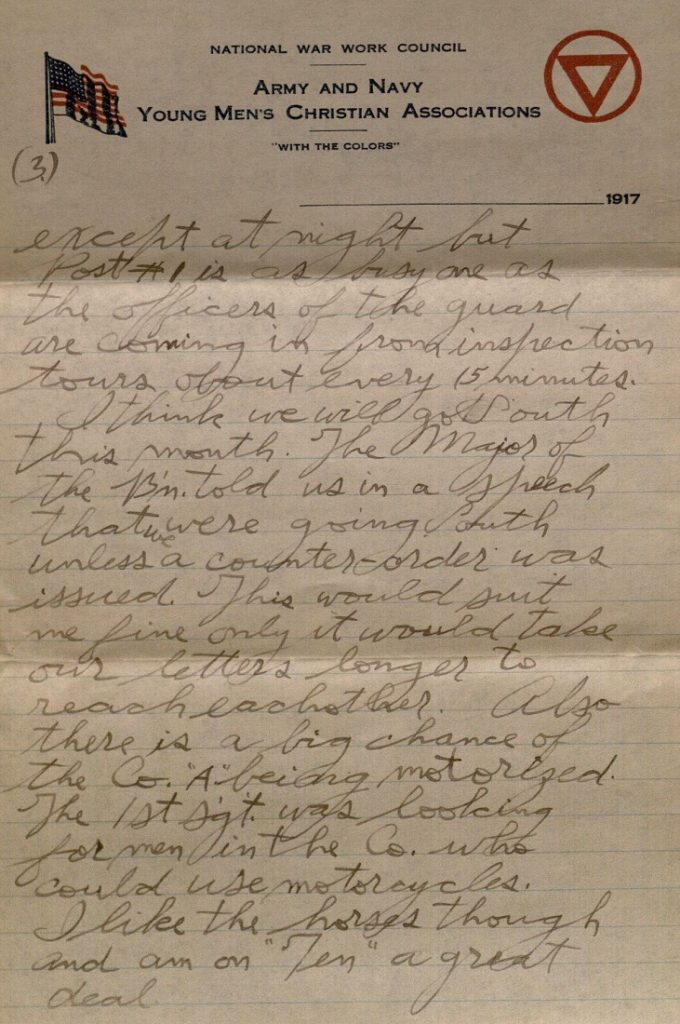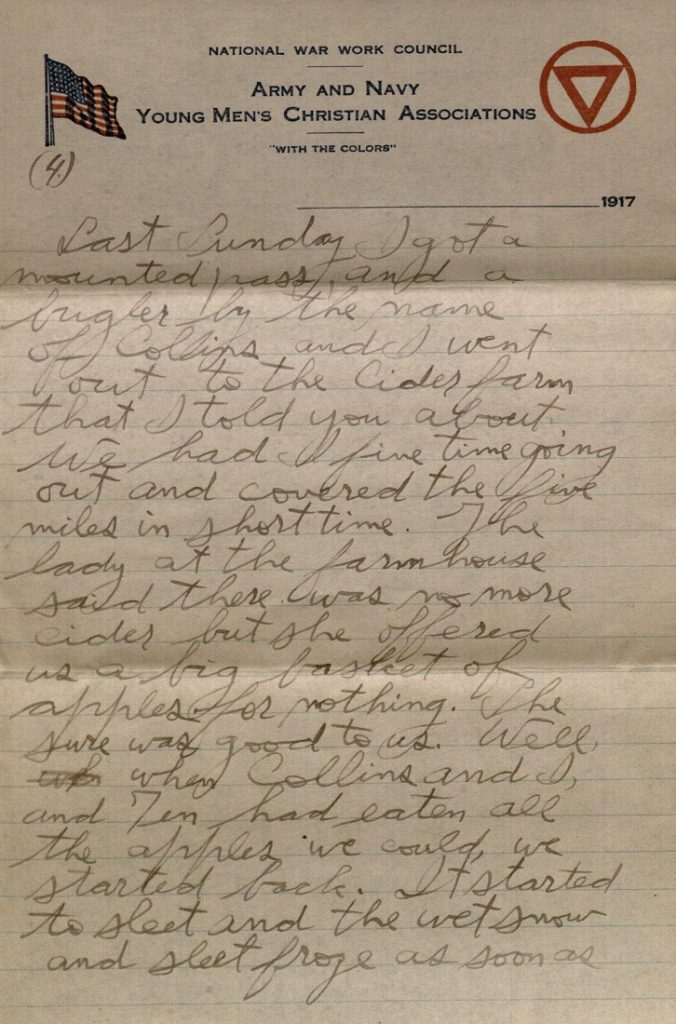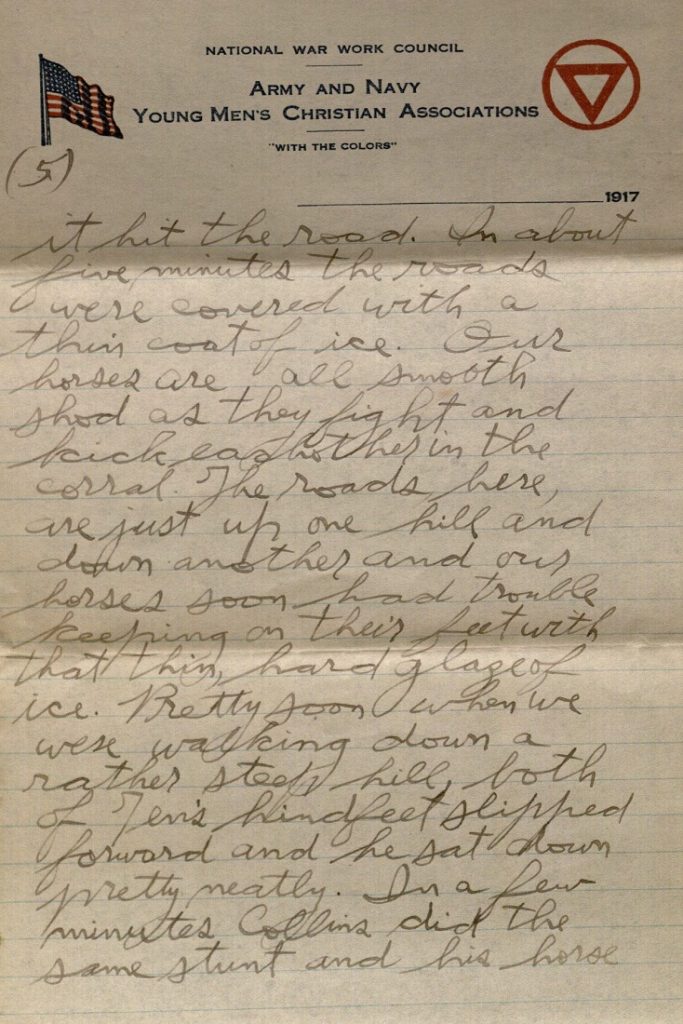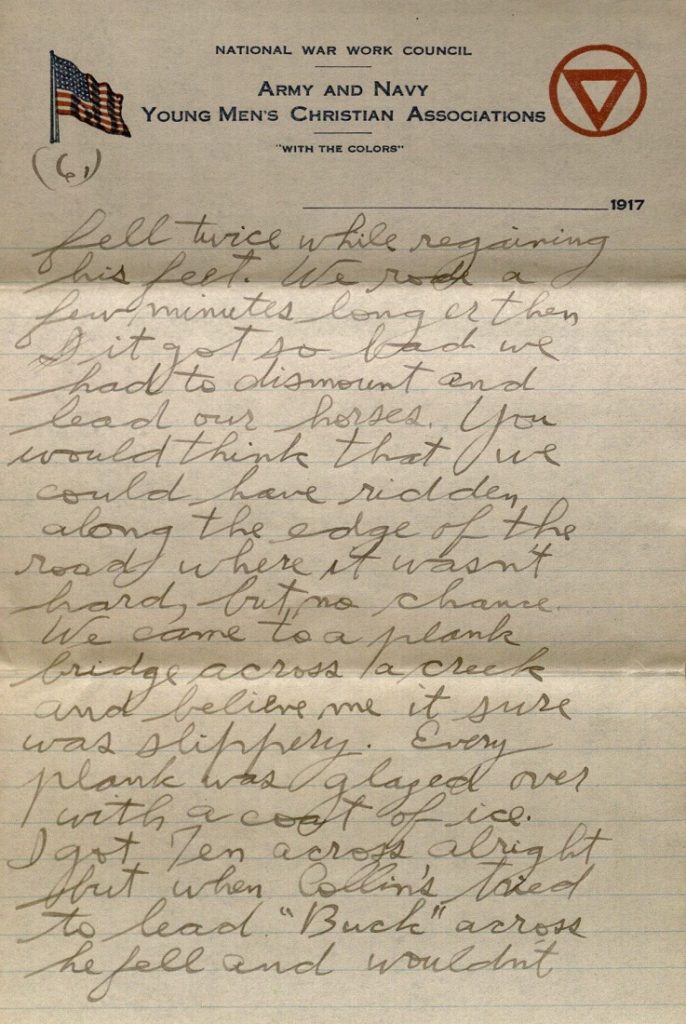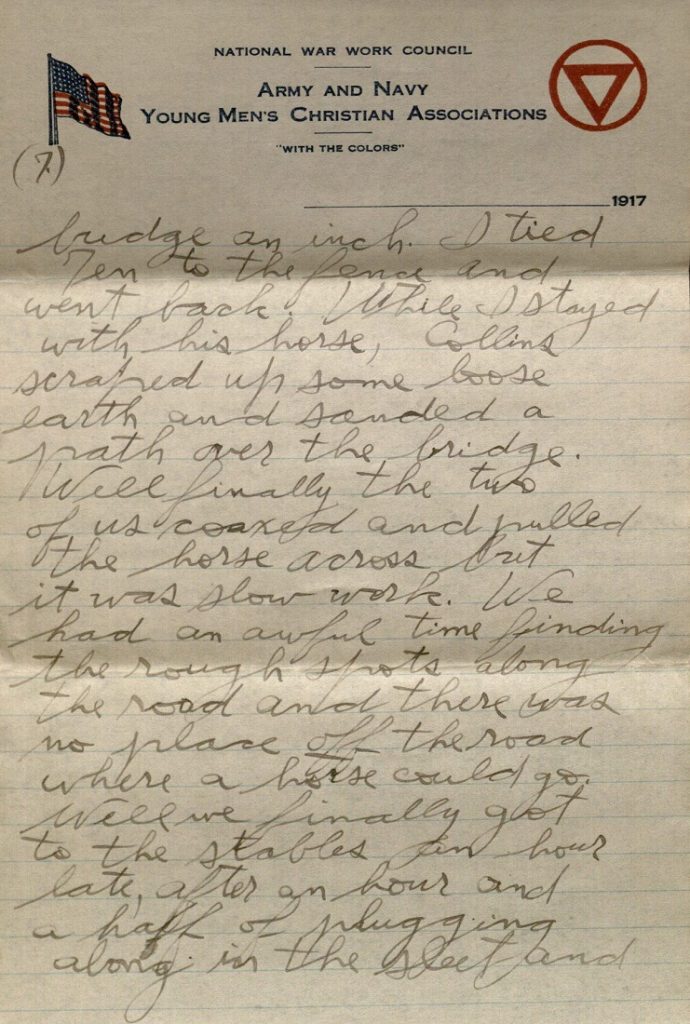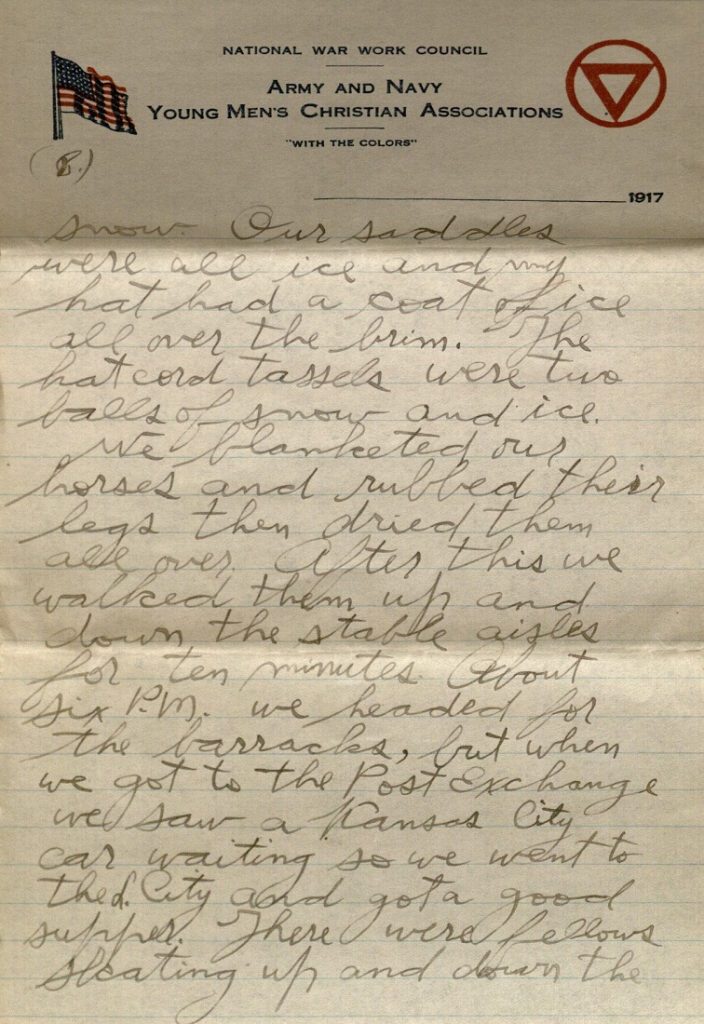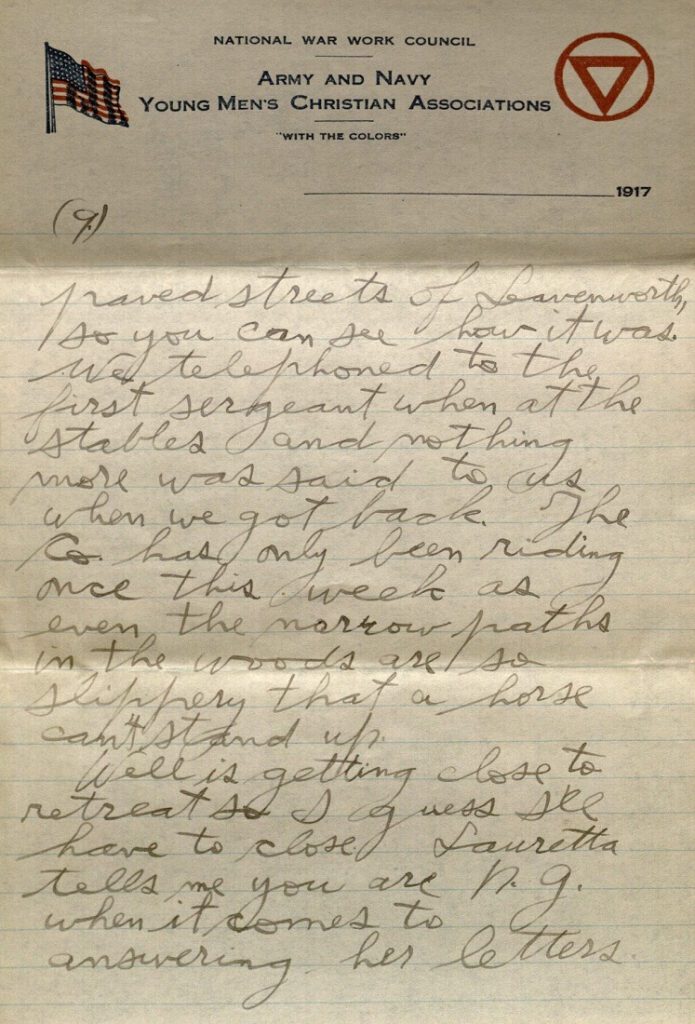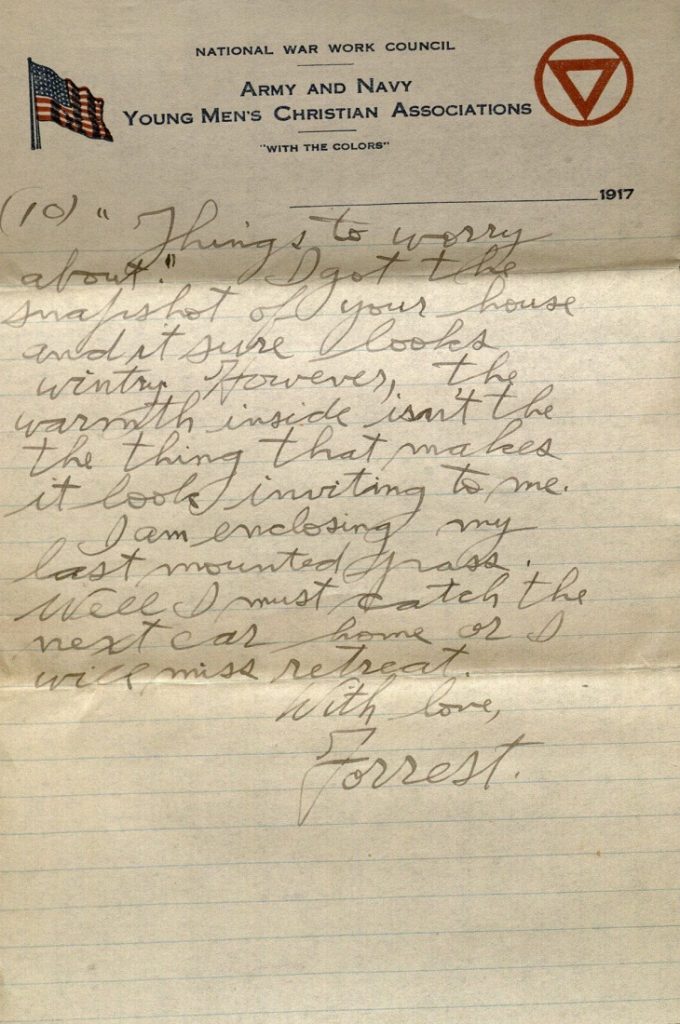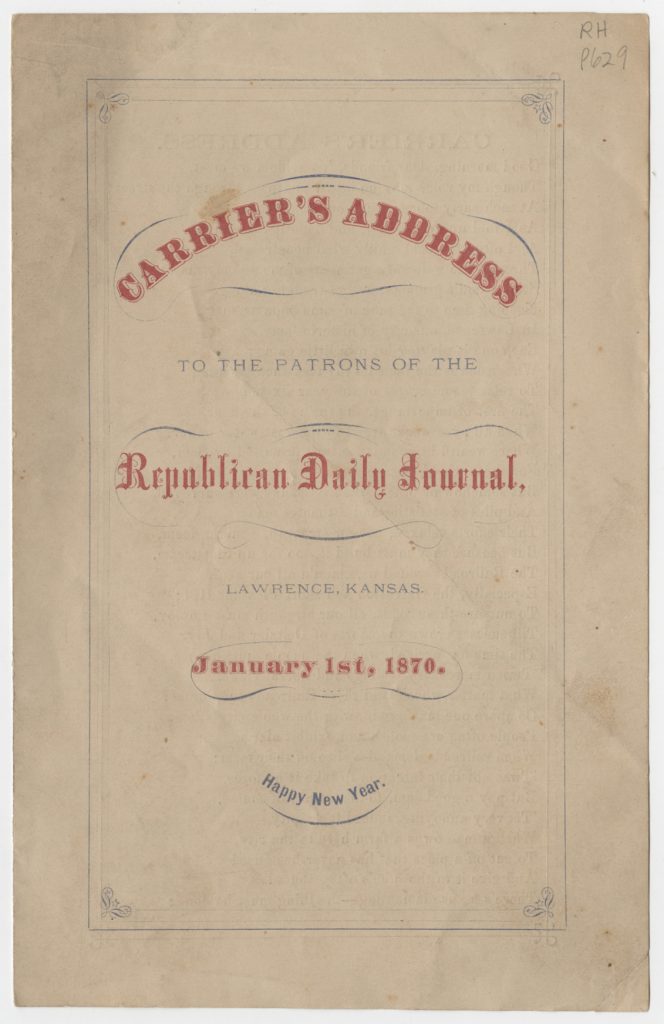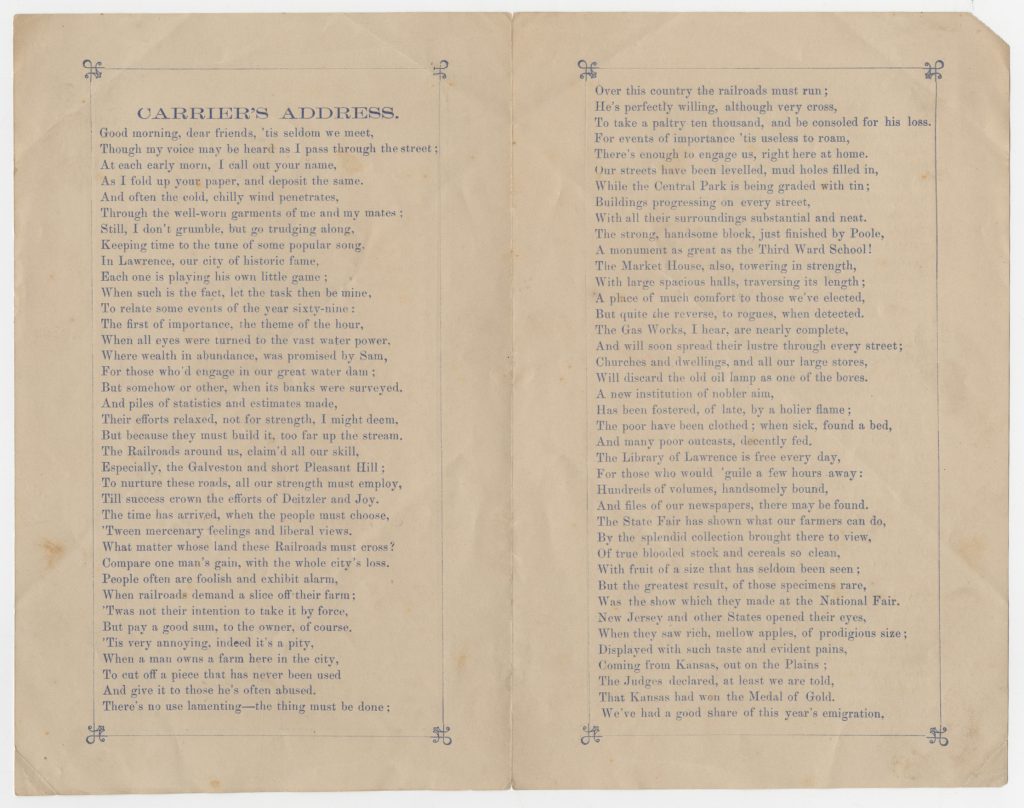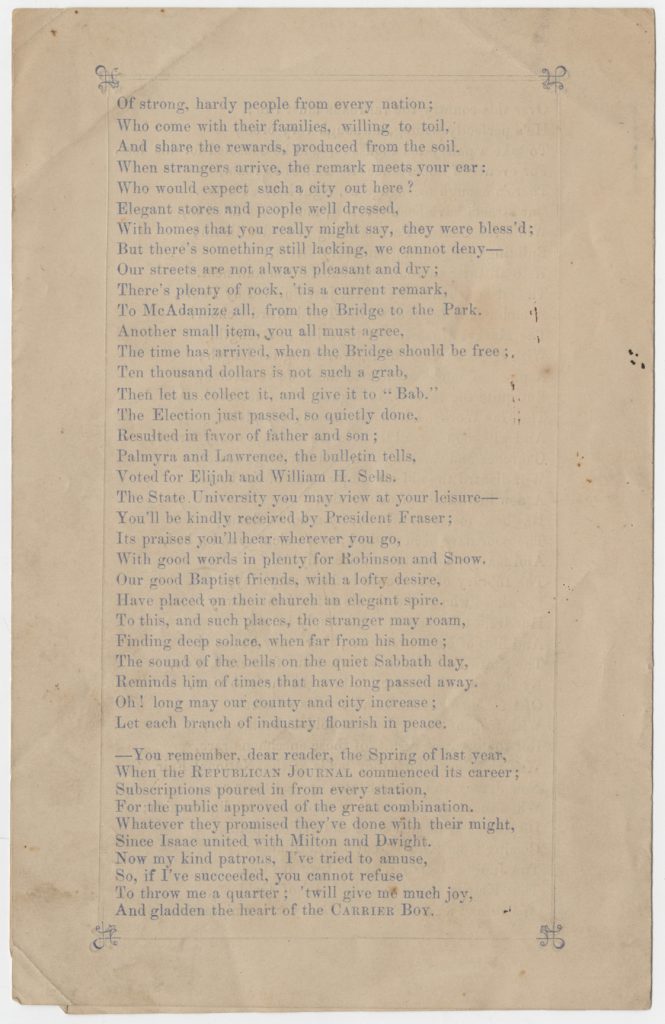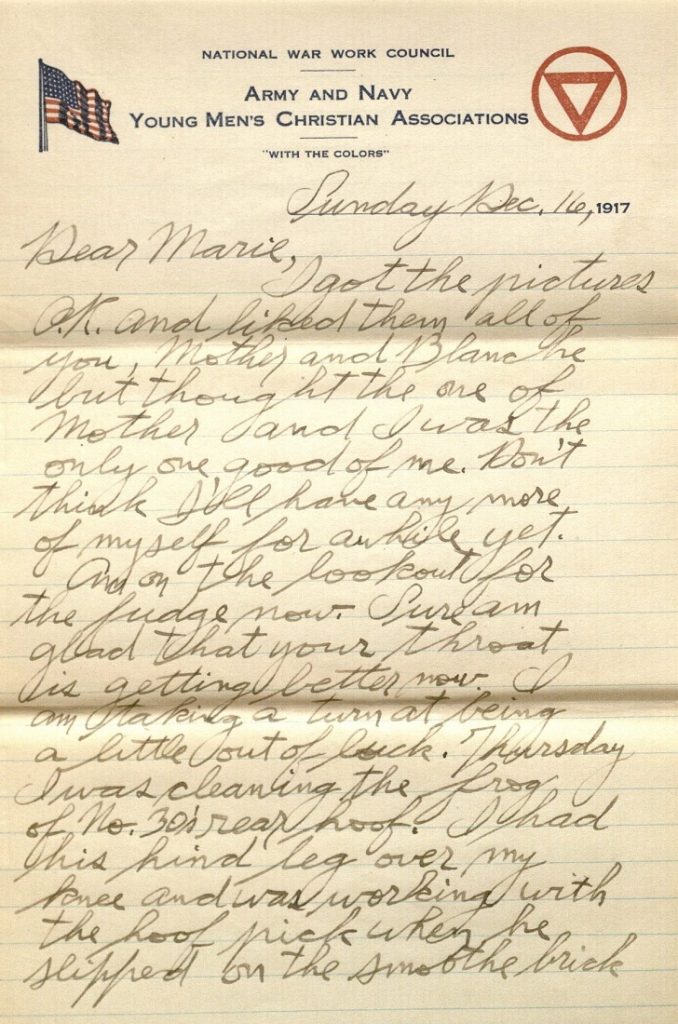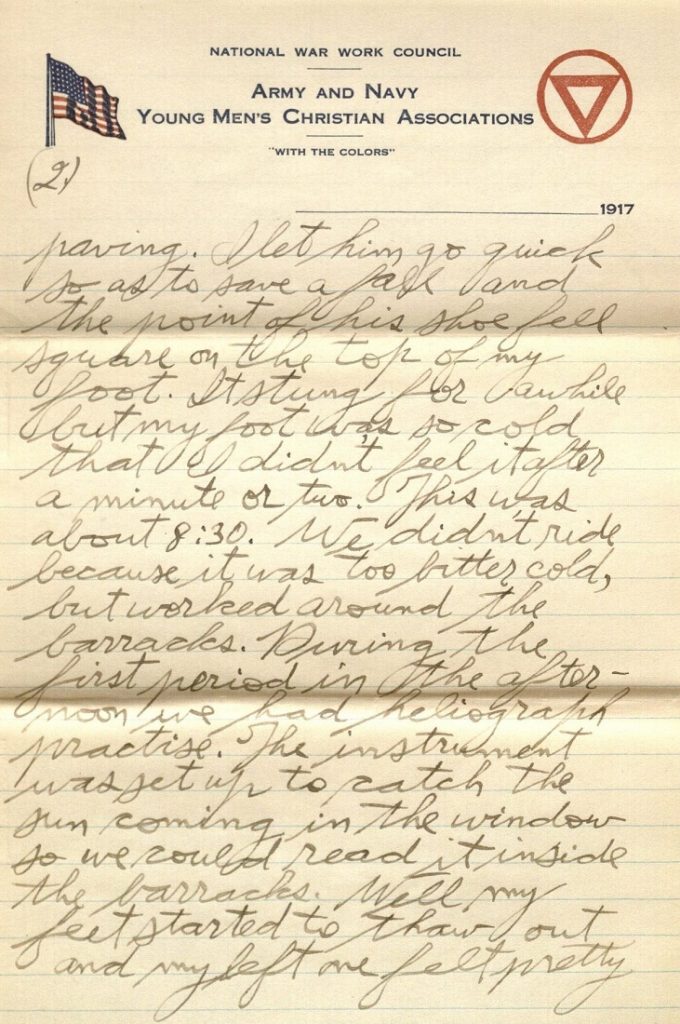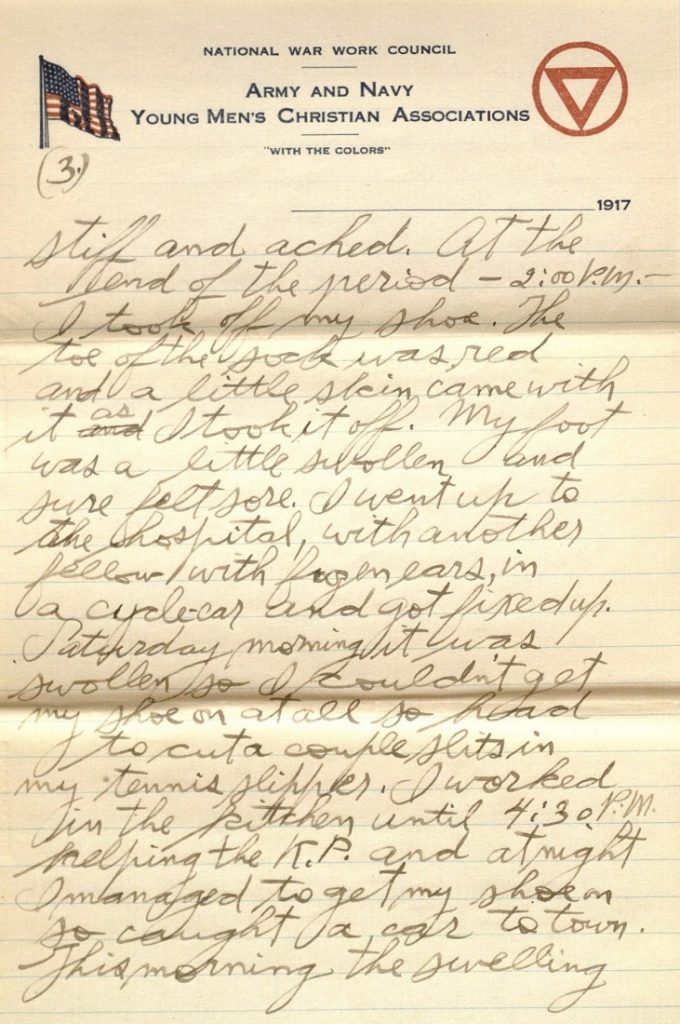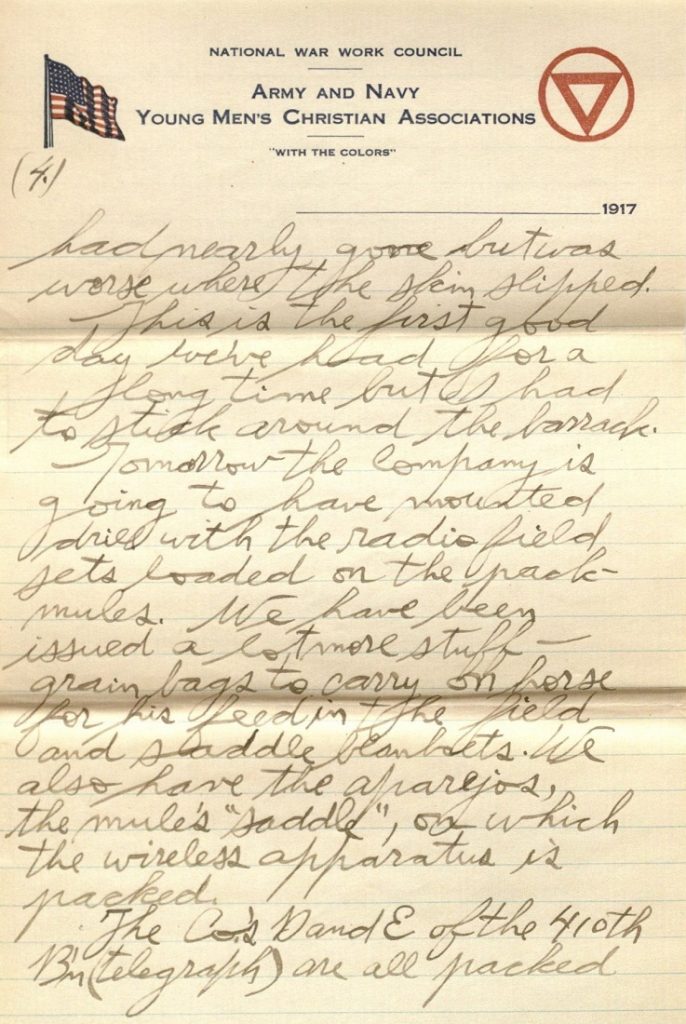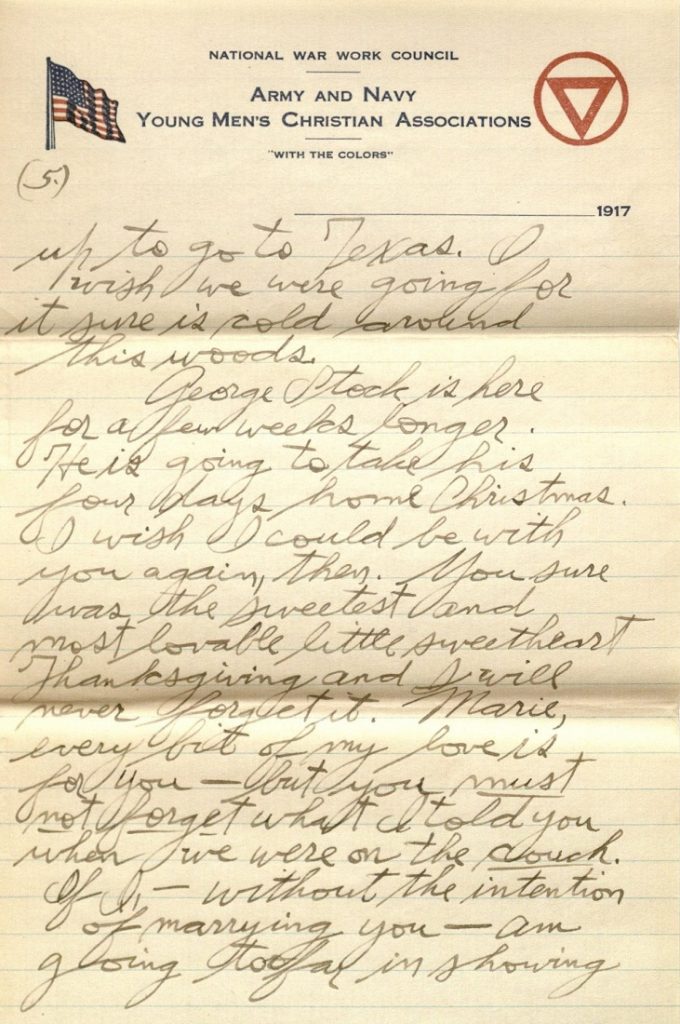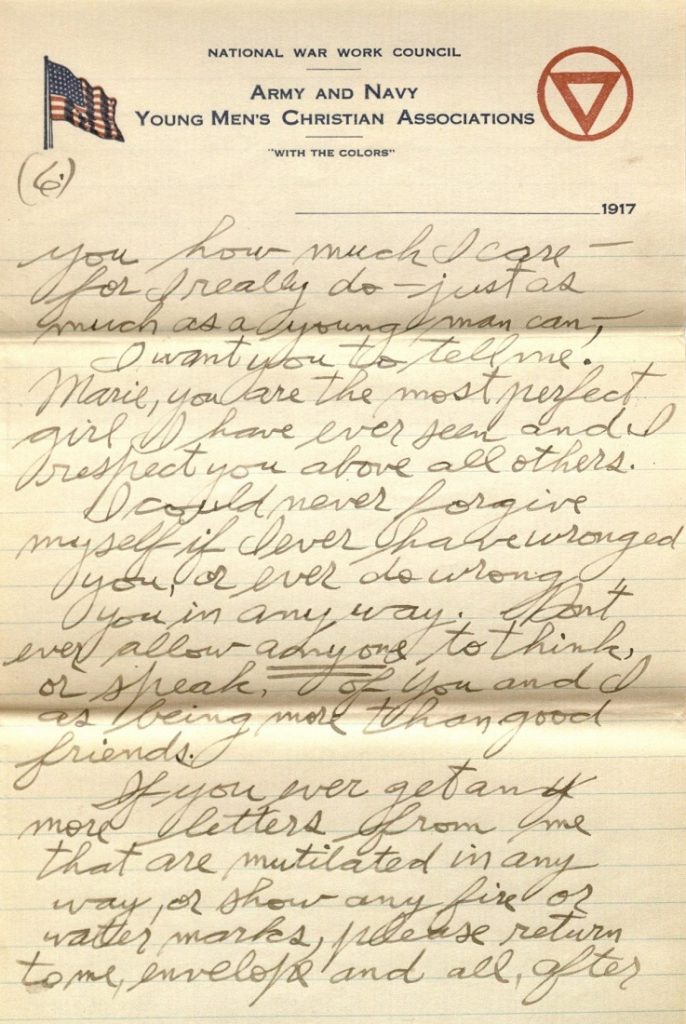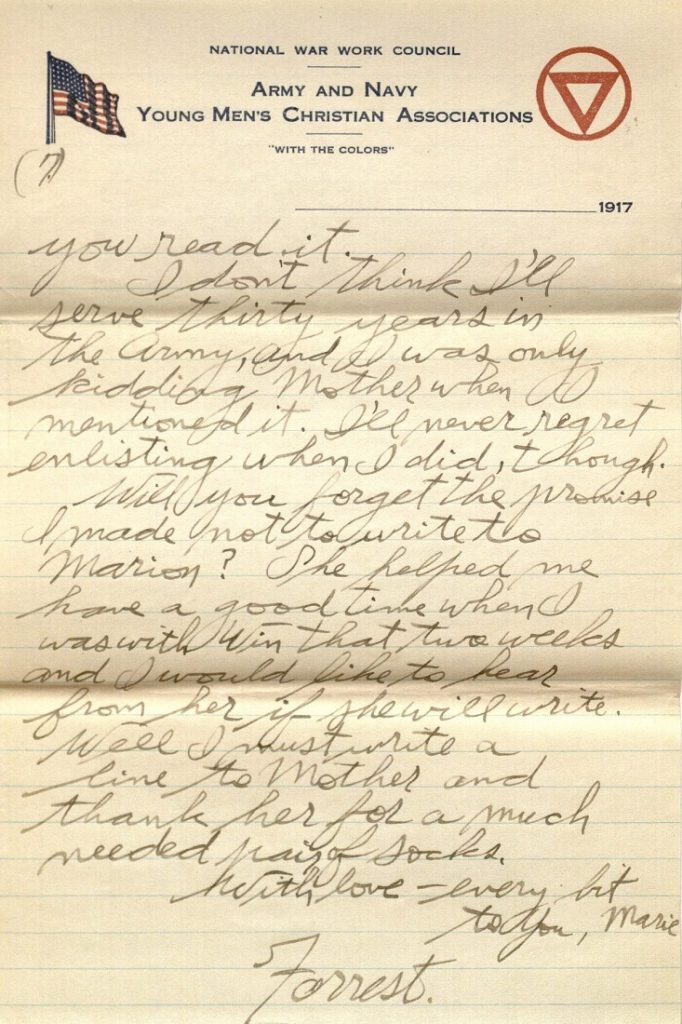World War I Letters of Forrest W. Bassett: January 15-21, 1918
January 15th, 2018In honor of the centennial of World War I, we’re going to follow the experiences of one American soldier: nineteen-year-old Forrest W. Bassett, whose letters are held in Spencer’s Kansas Collection. Each Monday we’ll post a new entry, which will feature selected letters from Forrest to thirteen-year-old Ava Marie Shaw from that following week, one hundred years after he wrote them.
Forrest W. Bassett was born in Beloit, Wisconsin, on December 21, 1897 to Daniel F. and Ida V. Bassett. On July 20, 1917 he was sworn into military service at Jefferson Barracks near St. Louis, Missouri. Soon after, he was transferred to Fort Leavenworth, Kansas, for training as a radio operator in Company A of the U. S. Signal Corps’ 6th Field Battalion.
Ava Marie Shaw was born in Chicago, Illinois, on October 12, 1903 to Robert and Esther Shaw. Both of Marie’s parents – and her three older siblings – were born in Wisconsin. By 1910 the family was living in Woodstock, Illinois, northwest of Chicago. By 1917 they were in Beloit.
Frequently mentioned in the letters are Forrest’s older half-sister Blanche Treadway (born 1883), who had married Arthur Poquette in 1904, and Marie’s older sister Ethel (born 1896).
Highlights from this week’s letters include new equipment, transfer to a new unit, and typhoid inoculations.
Click images to enlarge.
Jan. 20, 1918
Dear Marie,
I am mighty sorry I haven’t written to you oftener. Please don’t think that I am not thinking of you. I am surely going to write you a long “newsy” letter Monday or Wednesday and try to make up. Now, little Girlie please forgive me this once more will you?
With love,
Forrest.
Click images to enlarge.
Jan 21, 1918.
Dear Marie,
I am sorry that you are not feeling well. What is wrong with Mother? I want you to keep the sweater so of course you may alter it as you like. There are no negatives in my desk except the ones that I took with Roy’s camera. Did you get the picture of the Cantonment that I sent? The little signet ring you gave me shows very plainly in that picture of you picking cherries by the porch. Do you remember when we took that picture on July 4th? The ring is quite distinct in that picture of you in the canoe with the duck. Have you got these two pictures? It doesn’t look as if we will take any more next summer. We have our pistol belts now and all our equipment and clothes has been stamped A6F.BN.S.C. We were all measured for shoes a short time ago. I put on a 9D shoe the first time, picked up the dumb-bell and stood on one foot while the lietenent felt of the shoe to see how it fit. He said it was too small so I had to take a 9 ½ C. It looks as if we are going to do some footwork alright. We are no longer mounted. Never again will the bugle blow “Prepare to Mount” for Co. A-6. We expect to have motor equipment before we leave U.S. Each morning I attend a motor class for two hours at the War College. There are six others from A-6 in the same class. The work is quite interesting.
I have been transferred to the First Section. This section does more actual field work than the 5th section, which moves about very little in real service. The section-chief, Sergeant Baber, is the telegraph instructor of the Company. He sure is a fine fellow and is some operator alright. Corporal Abrahms, with whom rode as far as Chi., Thanksgiving, is also in this section. The “First” is probably the leading section in the Company and I sure am glad to get in it.
I had to take my three triple-typhoid innoculations all over again as the old record was lost at the hospital. This differs from a vaccination as the serum is injected with a hypodermic needle. I am not going to argue vaccination at long range but I know that no M.D. will ever get a shot at me after I get back in civilian life.
Well the Company goes on guard again tomorrow night so I think I will hit the straw early tonight.
With love,
Forrest.
Meredith Huff
Public Services
Emma Piazza
Public Services Student Assistant

